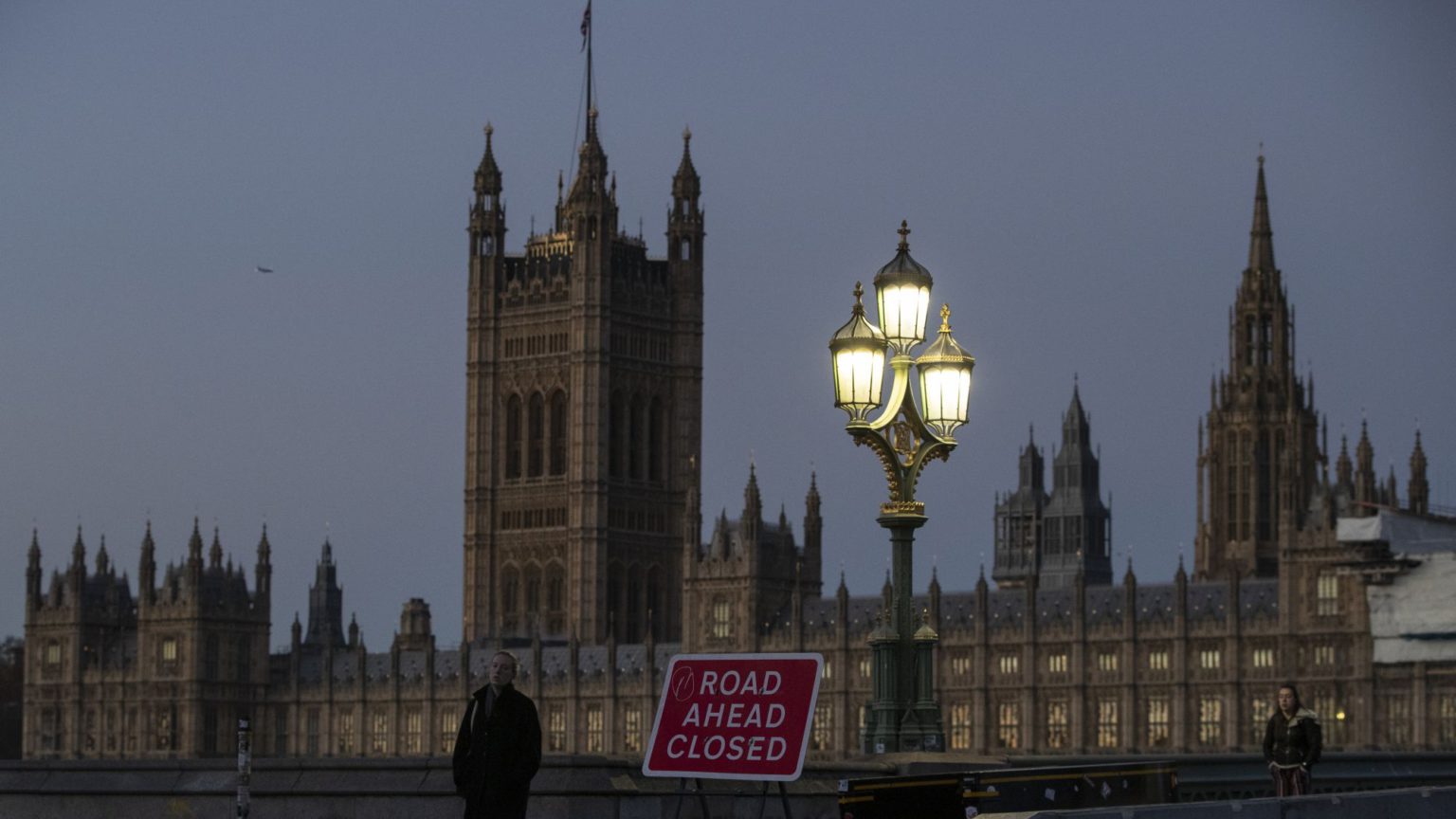In 2024, the war on Britain’s past became unhinged
Who knew that Hadrian's Wall was ‘queer’ and Peter Pan was ‘white supremacist’?

Want to read spiked ad-free? Become a spiked supporter.
Western cultural institutions have been waging a war on the past for several years now. They have turned national histories into sources of shame, damned key works in the Western canon as racist and pulled down historical monuments. 2024 has been no exception.
Over the course of the past 12 months, we’ve seen schools, universities and the media all engaged in rewriting, demonising and cancelling the legacy of Western civilisation.
Britain’s schools have also been a key battleground this year. Activist educators have attempted to make children ashamed of their society’s past. Take the guidance offered by The Key, an education-services company, on how to make the history curriculum ‘anti-racist’. It says that the British Empire should be taught to pupils just as Nazi Germany is taught to them – that is, as the history of a genocidal power committing atrocities. This isn’t an attempt to enlarge children’s understanding of the British Empire, warts and all. This is an attempt to stoke shame.
Indeed, the aim of so many of these projects is to instill in people a sense of guilt, as if they somehow bear responsibility for the actions of their distant ancestors. This has reached absurd proportions when it comes to the transatlantic slave trade.
Last month, the University of Nottingham and Nottingham Trent University published a tendentious report on their historical donors’ connections to the slave trade. In particular, it targeted high-street pharmacy Boots, noting how 19th-century businessman Jesse Boot had transformed his father’s pharmaceutical company into a nationwide retailer with the help of banks and premises linked to slavery. Though Boot had nothing to do with slavery himself, the mere fact that he used financial institutions connected to it is seemingly sufficient to tarnish his reputation.
That this report emerged from British academia is hardly a surprise. Universities are obsessed with signalling their sense of shame about Britain’s history, usually in the name of ‘decolonisation’. Lecturers at one prestigious Russell Group university even renamed its master’s course, ‘Viking and Anglo-Saxon studies’, as ‘Viking and early medieval English studies’. Apparently, the term Anglo-Saxon smacks of ‘white supremacy’ and has too many associations with nationalism. Higher-ups at Cambridge University clearly agree. This year, they removed the term Anglo-Saxon from the university’s world-leading journal, Anglo-Saxon England, re-launching it in May as Early Medieval England and its Neighbours.
These are not isolated examples. Academic activists have been busy accusing all manner of cultural artefacts of ‘white supremacy’. In its infinite wisdom, York St John University even decided that Peter Pan and Alice in Wonderland require trigger warnings to alert readers to their supposedly ‘white supremacist’ themes. Its library also warns readers that adventure stories by Jules Verne and other well-known 19th- and 20th-century novels written for children may contain offensive passages.
This war on the past hasn’t just involved finding ‘white supremacy’ everywhere. All sorts of bigotry is now being ‘uncovered’. At the University of York, one researcher is busy exploring the theme of ‘Transphobic Invocations of Archaeology’.
This rewriting of Britain’s past is now a common practice far beyond the nuttier realms of academia. In its guided audio tour, the curators at Royal Museums Greenwich have decided to identify Queen Charlotte, the wife of King George III, as ‘the nation’s first royal person of colour’. In doing so, it reinvented a woman born to a German princely dynasty as black – despite scholars having long rejected claims that she had African ancestors. The same museum also assigned LGBT identities to members of the aristocracy as part of its ‘very gay tour’ of Queen Charlotte’s House.
The most bizarre project designed to ‘queer’ Britain’s past also emerged this year, in the shape of English Heritage’s ‘Seven sites linked to England’s queer history’ blog post. One of the sites deemed ‘queer’ is Hadrian’s Wall. English Heritage justifies this characterisation on the grounds that Hadrian, like many Roman men, had a male lover, called Antinous. Quite why this makes the largest Roman archaeological construction in Britain a symbol of England’s ‘queer history’ is never explained.
As the queering of Hadrian’s Wall attests, this use and abuse of the past can come across as irrelevant and trivial. But it is far from inconsequential. Through this rewriting and demonisation of history, opponents of Western culture are seeking moral and political hegemony in the present. Their war on the past serves their interests in today’s culture war – indoctrinating people, especially the young, into their identitarian worldview.
The stakes are high. The contamination of the past, the demonisation of traditions and long-held values, diminishes the capacity of society to endow people’s lives with meaning. A society that becomes ashamed of its historical legacy invariably loses its way. It weakens our capacity to socialise children and dooms them to a permanent crisis of identity. It is our responsibility to the young to fight back in the history wars. Only then can we ensure future generations can benefit from their rich cultural inheritance.
Frank Furedi is the executive director of the think-tank, MCC-Brussels.
Picture by: Getty.
Who funds spiked? You do
We are funded by you. And in this era of cancel culture and advertiser boycotts, we rely on your donations more than ever. Seventy per cent of our revenue comes from our readers’ donations – the vast majority giving just £5 per month. If you make a regular donation – of £5 a month or £50 a year – you can become a and enjoy:
–Ad-free reading
–Exclusive events
–Access to our comments section
It’s the best way to keep spiked going – and growing. Thank you!











Comments
Want to join the conversation?
Only spiked supporters and patrons, who donate regularly to us, can comment on our articles.